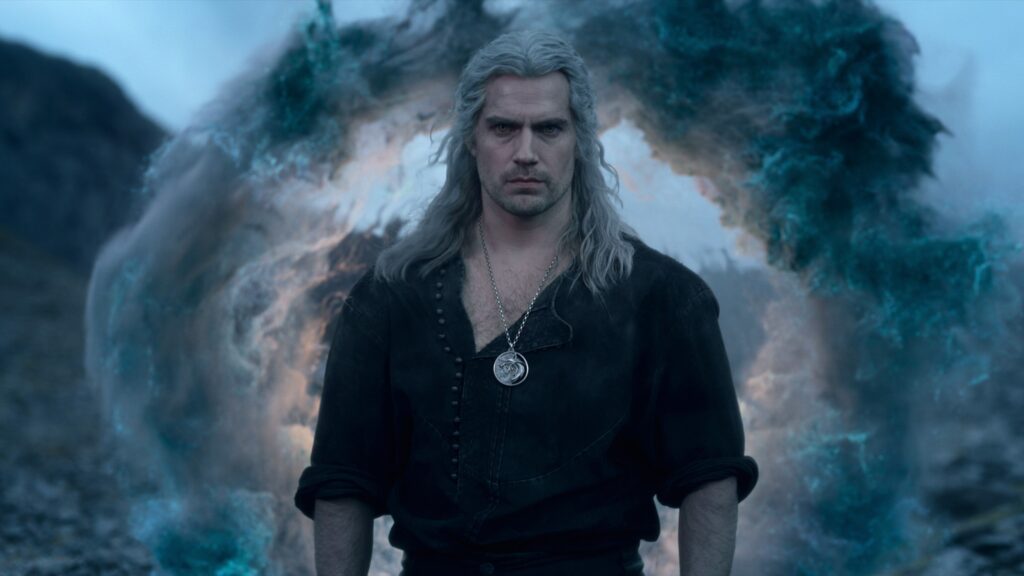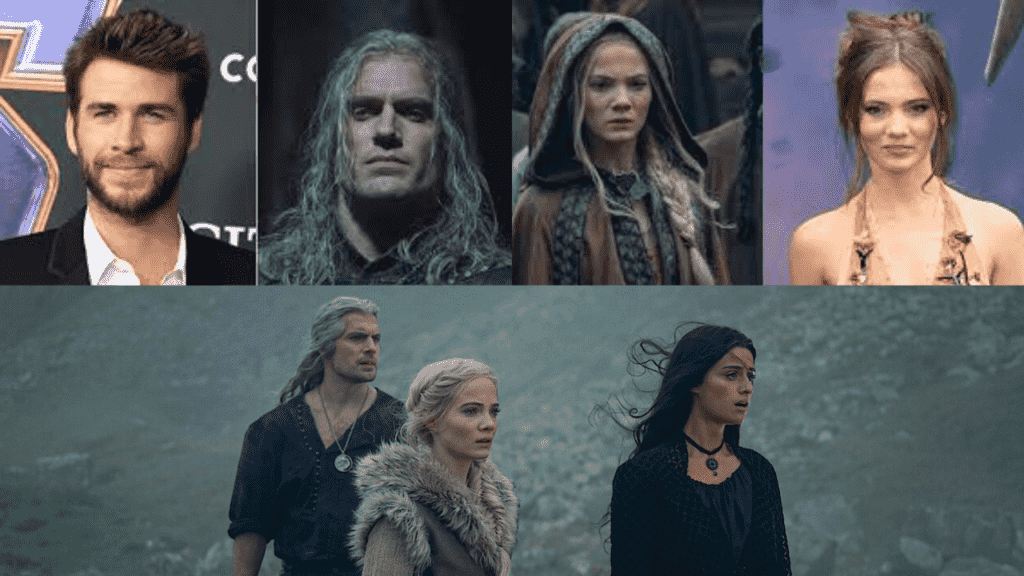Magic and Monsters: Exploring The Witcher Universe

The Witcher universe, created by Polish author Andrzej Sapkowski, has become a global phenomenon, capturing the imaginations of readers, gamers, and viewers alike. With its rich blend of magic, monsters, and morally complex characters, The Witcher offers a unique and immersive experience that transcends traditional fantasy tropes. This article delves into the intricate world of The Witcher, exploring its origins, key elements, and lasting impact on popular culture.
Origins of The Witcher Series
Creation by Andrzej Sapkowski
Andrzej Sapkowski, a Polish fantasy writer, introduced the world to Geralt of Rivia in the mid-1980s. Initially published in the Polish science fiction and fantasy magazine “Fantastyka,” Sapkowski’s short stories quickly gained a dedicated following. His unique take on fantasy, blending Slavic mythology with a gritty, realistic approach, set The Witcher apart from other works in the genre.
Initial Publication and Reception
The Witcher stories were first collected into a book in 1990, titled “The Last Wish.” This collection laid the groundwork for the expansive saga that followed, comprising five novels and several additional short stories. The series was a critical and commercial success in Poland, eventually gaining international acclaim as it was translated into numerous languages.
Adaptations into Other Media
The Witcher’s popularity led to various adaptations, including comic books, tabletop games, and, most notably, video games developed by CD Projekt Red. These adaptations have played a significant role in introducing The Witcher to a global audience, further expanding its influence and fanbase.
World-Building in The Witcher Universe
Geographical Overview
The Witcher universe is set in a richly detailed world known as The Continent. This vast land is divided into several regions, each with its own unique geography, culture, and political climate. Key locations include the Northern Kingdoms, the Nilfgaardian Empire, and the Skellige Isles, each contributing to the diverse tapestry of the world.
Key Locations and Their Significance
- Kaer Morhen: The ancient keep where witchers of the School of the Wolf, including Geralt, are trained.
- Novigrad: A bustling, multi-cultural city and major hub for trade and politics.
- Vizima: The capital of Temeria, a kingdom often at the center of political intrigue.
- Cintra: The homeland of Ciri, central to the series’ overarching plot.
Cultural and Political Structures
The Continent is characterized by a complex web of political alliances, feuds, and power struggles. The Northern Kingdoms frequently clash with the expansionist Nilfgaardian Empire, while internal conflicts within the kingdoms themselves add further layers of intrigue. The world also features diverse cultures, ranging from the warlike Skelligers to the sophisticated residents of Toussaint.
Magic in The Witcher Universe

Sources and Types of Magic
Magic in The Witcher universe is derived from a mysterious force known as the “Chaos.” Those who can harness this power are known as mages, sorceresses, and other magical practitioners. Magic is categorized into several types, including elemental magic, healing magic, and illusion.
Key Magical Practices and Users
- Sorceresses: Highly skilled and often politically influential, sorceresses like Yennefer of Vengerberg play pivotal roles in the series.
- Signs: Simplified spells used by witchers, including Aard (telekinetic blast) and Igni (fire).
- Alchemy: The practice of creating potions and bombs, essential for witchers in their monster-hunting duties.
Role of Magic in Society
Magic is both revered and feared in The Continent. While mages hold significant power and often serve as advisors to kings, the common folk are wary of magic and those who wield it. This tension creates a dynamic backdrop for the series’ exploration of power, control, and prejudice.
Monsters in The Witcher Universe
Types of Monsters
The Witcher universe features a vast array of monsters, each with unique characteristics and lore. These creatures range from familiar fantasy staples to those inspired by Slavic mythology.
- Vampires: Including higher vampires like Regis, who possess intelligence and human-like qualities.
- Griffins: Majestic, deadly beasts that combine elements of lions and eagles.
- Drowners: Vicious, aquatic creatures often found near bodies of water.
Origin and Characteristics
Monsters in The Witcher are often the result of magical experiments gone wrong, curses, or natural evolution in a world saturated with magic. Each monster has specific weaknesses and behaviors, which witchers must study and exploit to defeat them.
Notable Monsters and Their Stories
- The Striga: A cursed princess transformed into a monstrous creature, whose story is central to Geralt’s early adventures.
- The Leshen: Forest spirits that can control wildlife and nature, posing a significant threat to humans.
- The Djinn: Powerful elemental beings that grant wishes, often with disastrous consequences.
Witchers: The Monster Hunters
Origin and Purpose
Witchers are mutated humans, trained and enhanced to hunt and kill monsters. Created through a series of alchemical processes known as the Trial of the Grasses, witchers possess superhuman abilities, including enhanced strength, reflexes, and longevity.
Training and Trials
The path to becoming a witcher is arduous and dangerous. Young boys are subjected to rigorous physical and magical training at strongholds like Kaer Morhen. The final test, the Trial of the Grasses, involves consuming a series of mutagenic potions that can be fatal. Only a few survive to become fully-fledged witchers.
Notable Witchers in the Series
- Geralt of Rivia: The series’ protagonist, known for his white hair and exceptional skills.
- Vesemir: Geralt’s mentor and the oldest living witcher.
- Lambert and Eskel: Fellow witchers and close companions of Geralt.
Characters in The Witcher Universe
Geralt of Rivia
Geralt, also known as the White Wolf, is a stoic and skilled monster hunter. Despite his often cold exterior, he is deeply moral and compassionate, navigating the world’s complexities with a strong sense of justice.
Yennefer of Vengerberg
A powerful sorceress with a tumultuous past, Yennefer is both an ally and love interest of Geralt. Her journey from a deformed girl to a powerful mage is a testament to her resilience and ambition.
Ciri of Cintra
Ciri, a child of destiny, is central to The Witcher saga. With elder blood in her veins, she possesses immense power and is pursued by various factions for her potential to alter the world’s fate.
Other Significant Characters
- Triss Merigold: A sorceress and close friend of Geralt.
- Dandelion (Jaskier): A bard and Geralt’s loyal companion, providing comic relief and musical talent.
- Emhyr var Emreis: The enigmatic emperor of Nilfgaard with a hidden connection to Ciri.
Themes and Motifs
Morality and Ambiguity
The Witcher series is renowned for its exploration of moral ambiguity. Characters often face choices with no clear right or wrong answers, reflecting the complexities of real-world ethics and consequences.
Fate and Destiny
Destiny plays a crucial role in the series, particularly concerning Ciri. The intertwined fates of Geralt, Yennefer, and Ciri drive much of the narrative, exploring themes of free will versus predetermined paths.
The Natural vs. The Supernatural
The interplay between the natural world and supernatural forces is a constant theme. The presence of monsters, magic, and mystical prophecies creates a world where the ordinary and the extraordinary coexist, often in conflict.
The Witcher Books
Overview of the Book Series
The Witcher book series includes two collections of short stories (“The Last Wish” and “Sword of Destiny”) and five main novels (“Blood of Elves,” “Time of Contempt,” “Baptism of Fire,” “The Tower of Swallows,” and “The Lady of the Lake”). These books chronicle the adventures of Geralt, Ciri, and Yennefer, weaving together personal stories with broader political and magical conflicts.
Key Plot Points
- The Last Wish: Introduces Geralt and sets up the main characters and world.
- Blood of Elves: Focuses on Ciri’s training and the looming threat of Nilfgaard.
- The Tower of Swallows: Details Ciri’s trials and journey through various dimensions.
- The Lady of the Lake: Concludes the saga with resolutions to character arcs and the fate of The Continent.
Reception and Critique
The Witcher books have been praised for their deep character development, intricate plotting, and moral complexity. Critics and fans alike appreciate Sapkowski’s ability to blend high fantasy with philosophical and ethical questions, creating a series that is both entertaining and thought-provoking.
The Witcher Video Games
Development by CD Projekt Red
The Witcher video games, developed by CD Projekt Red, have been instrumental in popularizing the series worldwide. The first game was released in 2007, followed by “The Witcher 2: Assassins of Kings” in 2011, and “The Witcher 3: Wild Hunt” in 2015.
Game Mechanics and Storylines
The games are renowned for their open-world design, rich narrative, and complex characters. Players control Geralt, making choices that affect the story’s outcome, engaging in combat with a variety of monsters, and exploring detailed environments.
- The Witcher 3: Wild Hunt: Often hailed as one of the greatest video games of all time, it features a vast open world, deep storytelling, and engaging side quests.
Critical and Commercial Success
The Witcher games have received critical acclaim and numerous awards. “The Witcher 3: Wild Hunt” alone won hundreds of Game of the Year awards and has sold over 30 million copies. The success of the games has significantly boosted the popularity of the entire Witcher franchise.
The Witcher TV Series
Netflix Adaptation
Netflix’s adaptation of The Witcher, starring Henry Cavill as Geralt, premiered in 2019. The series adapts stories from the books, introducing a new audience to the world of The Witcher.
Key Differences from the Books and Games
While the TV series follows the books closely, it makes several changes for narrative and pacing reasons. The non-linear storytelling in the first season, for example, received mixed reviews from viewers.
Reception and Impact
The Witcher TV series has been a commercial success for Netflix, quickly becoming one of the platform’s most-watched shows. It has further expanded the franchise’s fanbase and sparked renewed interest in the books and games.
Cultural Impact of The Witcher
Influence on Fantasy Genre
The Witcher has had a profound impact on the fantasy genre, influencing other works with its dark, morally complex storytelling and richly developed world. Its success has demonstrated the appeal of Eastern European folklore and myth to a global audience.
Fan Community and Fandom Activities
The Witcher has a vibrant and active fan community, engaging in activities such as cosplay, fan fiction, and online discussions. Fan conventions and events dedicated to The Witcher further foster a sense of community and celebration of the series.
Merchandising and Spin-Offs
The franchise has spawned a wide range of merchandise, including action figures, clothing, and board games. Spin-offs, such as the Gwent card game, have also been successful, expanding the universe and providing fans with new ways to engage with the world of The Witcher.
Future of The Witcher Universe
Upcoming Releases and Projects
The Witcher franchise shows no signs of slowing down. CD Projekt Red is working on new games set in The Witcher universe, and Netflix has announced additional seasons and spin-off series.
Speculations and Fan Theories
Fans speculate about future storylines, character arcs, and potential new adaptations. The rich lore and unfinished threads from the books and games provide ample material for future exploration.
Potential Directions for the Series
The future of The Witcher could see further expansion into new media, deeper exploration of lesser-known characters, and even new stories set in different eras of The Continent’s history.
Conclusion
The Witcher universe, with its blend of magic, monsters, and complex characters, has captivated millions around the world. From its origins in Polish literature to its global success in games and television, The Witcher continues to be a source of inspiration and entertainment. Its lasting legacy is a testament to the power of storytelling and the enduring appeal of richly crafted fantasy worlds. For those yet to explore The Witcher, now is the perfect time to dive into this enthralling universe.
